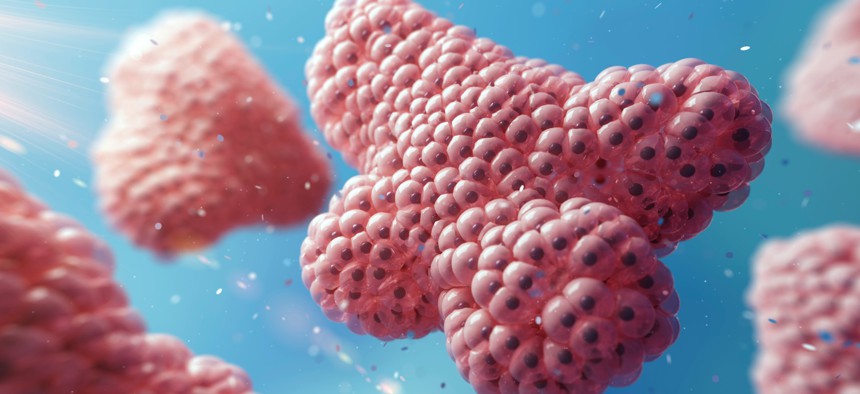
The Pentagon is looking for tiny sensors that track the health of biological tissue, part of an effort to help soldiers recover from wounds—and give the U.S. biotech industry a leg up.
“The BIO INSPECT, government-directed project through AIM Photonics is seeking to develop an in situ, real-time analysis capability for applications in regenerative medicine,” Nicholas Usechak, director of ultrafast photonics devices and research laboratory in the Air Force Research Laboratory’s sensors directorate, told Defense One during a Pentagon research and engineering event on Tuesday.
AIM Photonics, one of the Defense Department’s manufacturing innovation institutes, and specializes in the complete manufacturing of silicon photonics technologies, which uses light to send data, through partnerships with companies, researchers, and developers.
The Defense Department has long invested in regenerative medicine, such as growing cranial tissue for head wounds, to better address battlefield injuries.
The idea behind the Biological, Integrated, Novel, Silicon Photonics for Efficient Characterization and Testing, or BIO INSPECT, project is to create a sensor to help optimize the regeneration process by monitoring pressure, temperature and other metrics that can give insight into the status of the tissue.
“We’re trying to—within AIM, within the BIO INSPECT effort—create a sensor to enable that whole field to grow better by getting diagnostic, real-time feedback on the concentration of some of these proteins and other things that are added as they go through these regenerative growth campaigns,” Usechak said.
Beyond the science of it all, a primary goal behind the effort is to stimulate domestic expertise and production of biotechnologies.
“That’s a huge area. It’s an area where we have a lot of concern that China, for example, is making a lot of investments. And so I think we benefit if we’re able to remain competitive in it,” Usechak said.
The project, while small starting at $1.15 million, plays into a larger push to increase domestic production of key technologies and materials. For example, in May, President Donald Trump issued an executive order aimed at expanding pharmaceutical manufacturing capacity in the U.S. domestic production of critical medicines. The Biden administration also pushed to boost U.S.-based biomanufacturing through an executive order and a report that identified barriers to adding crucial infrastructure.
It’s key to “help grow some of these small companies in the U.S. [into] a bigger ecosystem by helping them generate things that are going to move the needle for the whole bio industry in general,” he said.
The post Pentagon seeks sensors to aid regenerative medicine appeared first on Defense One.




